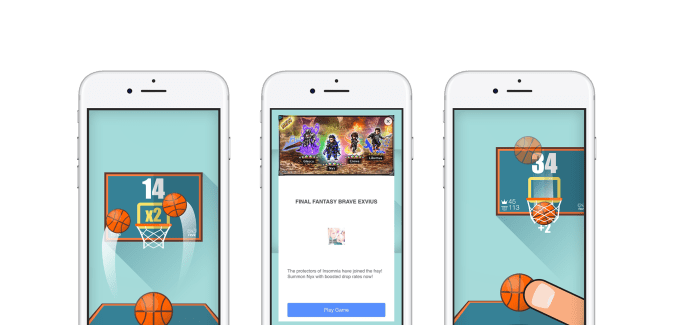Facebook Messenger lets games monetize with purchases and ads

Facebook is finally giving developers a reason to build games for Messenger while also opening a new revenue stream for the chat app. After launching HTML5 ‘Instant Games’ inside Messenger, like Pac-Man, Space Invaders and Words With Friends Frenzy in November 2016, today Facebook is allowing developers to add in-app purchases as well as interstitial and rewarded video ads. Players get a virtual good or bonus life in exchange for watching rewarded videos.
Facebook will take a cut of the ads shown in Messenger games that are routed from its Facebook Audience Network, and they’ll begin appearing in some games on iOS and Android. In-app purchases will only start testing on Android, with Google Play taking its standard 30 percent cut.
Facebook was cagey about how much of a cut of in-app purchase revenue it plans to take, repeatedly giving this vague statement when asked: “Our early tests for IAP will follow the standard rev/share policy and transaction fees for Google Play In-App billing.” For now it seems the remaining 70 percent goes to the developer, but Facebook will likely opt to take a portion of that when in-app purchases fully roll out.
Developers who want access to the monetization beta program as Facebook rolls it out more widely can sign up here, while advertisers who don’t want their Audience Network ads appearing in games can opt out. Facebook plans to roll out ad measurement and optimization tools for game developers soon, plus ways to publish games to its directory more easily.

The move should attract higher-quality games to the Messenger platform, as until now, devs could only hope to build an audience and monetize down the line. Now with cash able to flow in through the games, it’s worth pouring more development resources into the platform. Previously, the only real way to earn money off these games was indirectly through branding, as with titles like Valerian Space Run, Wonder Woman and Lego Batman Bat Climb that promote movies.
Messenger has had some missteps these past few years, with a half-baked roll out of bots that left many feeling they were dysfunctional, and a retreat from a redesign that over-prioritized the Messenger Camera. Facebook says Messenger Day has 70 million daily active users, but that means it has grown much slower than Instagram Stories, and it still feels a bit bolted on atop the inbox. Both bots and stories were potential vectors for monetization and now Facebook is looking elsewhere for revenue streams.
Facebook seems to be taking Messenger Instant Games quite seriously after its desktop game platform withered and mobile gaming was dominated by the App Store and Google Play platforms. Facebook sees an opportunity to not only give people something to do between chat conversations and a way to challenge friends, but also now to start squeezing more cash out of the 1.3 billion Messenger users without interrupting the traditional use cases as its inbox ads do.